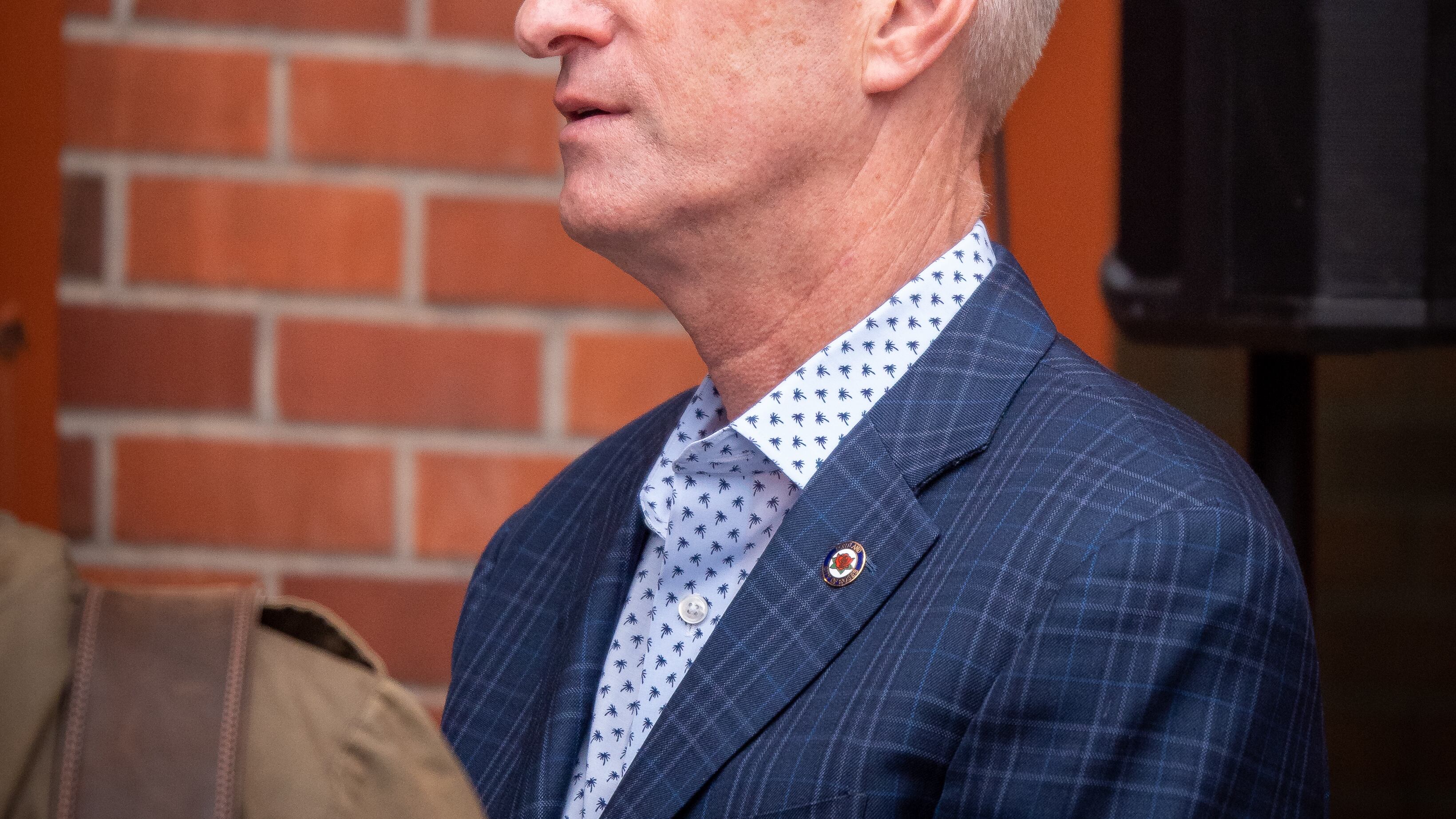On Friday morning, Mayor Ted Wheeler announced a set of five resolutions coming to the Portland City Council in the coming weeks to address homelessness. They’re big, ambitious and not yet funded—but signal a paradigm shift in the city’s approach to homelessness.
The big-ticket items were first reported by WW last week. They include: three 500-capacity sanctioned camping sites (beginning with 150 people at each of the three), an 18-month phased-in ban on unsanctioned camping, and a goal to begin construction on 20,000 units of affordable housing by the year 2033.
In the press conference Friday morning, Wheeler acknowledged that naysayers would criticize coupling a camping ban with the massive encampments.
“I believe this thinking is well intentioned, but I also believe it’s deeply misguided,” Wheeler said. “The fact is, for the past eight months, we’ve increased alternative camping options without a ban, and to be completely transparent, it has not worked.”
In other sweeping plans laid out in the resolution drafts, shared with WW on Thursday afternoon, the city wants to partner with the Multnomah County District Attorney’s Office to create a program by which people cited for unsanctioned camping and other low-level offenses can resolve those citations by agreeing to addiction treatment or other services.
The resolutions also direct city staff and bureaus to work on chipping away at barriers to building more affordable housing, as well as to take inventory of all city-owned properties where affordable housing could be built and create a “land bank” database.
Perhaps the fifth resolution presented by the mayor is the most telling: ask government partners to help.
It’s important for two reasons: City Hall doesn’t control the money needed to implement Wheeler’s plan, and Portland’s homeless camps have become the single most important issue to Oregon voters, threatening the Democratic Party’s hold on state government.
“We don’t have the expertise and we don’t have the resources to go at it alone,” Wheeler said, adding that he is speaking with state senators, the three gubernatorial candidates (all of whom said earlier this week they supported Wheeler’s sanctioned camping sites), congressional delegates, Metro and the county. In a statement Friday morning, U.S. Congressman Earl Blumenauer said he stands “ready to assist the city and call on all community leaders, elected and nonelected, to get behind this effort.”
All of the ambitious plans laid out so far are unfunded. The mayor’s office told WW last week it is looking for funding from a number of partners, including the state and federal governments and Multnomah County, but that’s easier said than done.
For one, Multnomah County is not likely to acquiesce. Board Chair Deborah Kafoury issued a biting response last week to the city’s request, penciled out in a letter from Mayor Wheeler and City Commissioner Dan Ryan, that the county fund the 500-capacity sites. She told WW: “If the mayor’s office wants to ‘clean up’ this city and enforce time, place and manner laws, they don’t have to hide behind me or anyone else. They can just do it.”
This morning, however, Wheeler alluded to a patching up of the rift.
“The [county chair] and I agree the city and county need to work as a team to address homelessness,” Wheeler said. “Together, we’re currently evaluating all the funding and programmatic tools that can be leveraged to address at scale our humanitarian crisis.” (He did not say whether Kafoury had agreed to offer the city funding, and noted he was speaking with the two board chair candidates in next month’s general election as well.)
What looms large over the city’s demands from the county last week, as first reported by WW, is the Joint Office of Homeless Services agreement, which is up for renewal next summer. The city may choose to withdraw from the agreement and pull out its annual contribution to the Joint Office—in the range of $40 million to $45 million a year. That would give the city at least partial funding to pursue the mayor’s plans.
All five City Council members attended Friday’s press conference, but two in particular stopped short of offering a full-throated endorsement of the plan: Commissioners Jo Ann Hardesty and Carmen Rubio.
“I am not here to endorse or oppose this plan at this moment,” Hardesty said, “but to appreciate that there are multiple resolutions on the table that are intriguing….Here’s what I know: We all agree we’re in an emergency and must act with more urgency.”
Hardesty said she does, however, support temporary sanctioned camping areas and expanding indoor shelter capacity. She said her office would offer amendments to the “only recently shared” resolutions in the coming days and weeks.
Rubio, too, couched her support with some caveats. She said she would make sure the process is “accountable to the values of equity, dignity, respect and compassion.”
Commissioner Mingus Mapps said he intends to vote for all five resolutions when they come to the City Council in the coming weeks.

